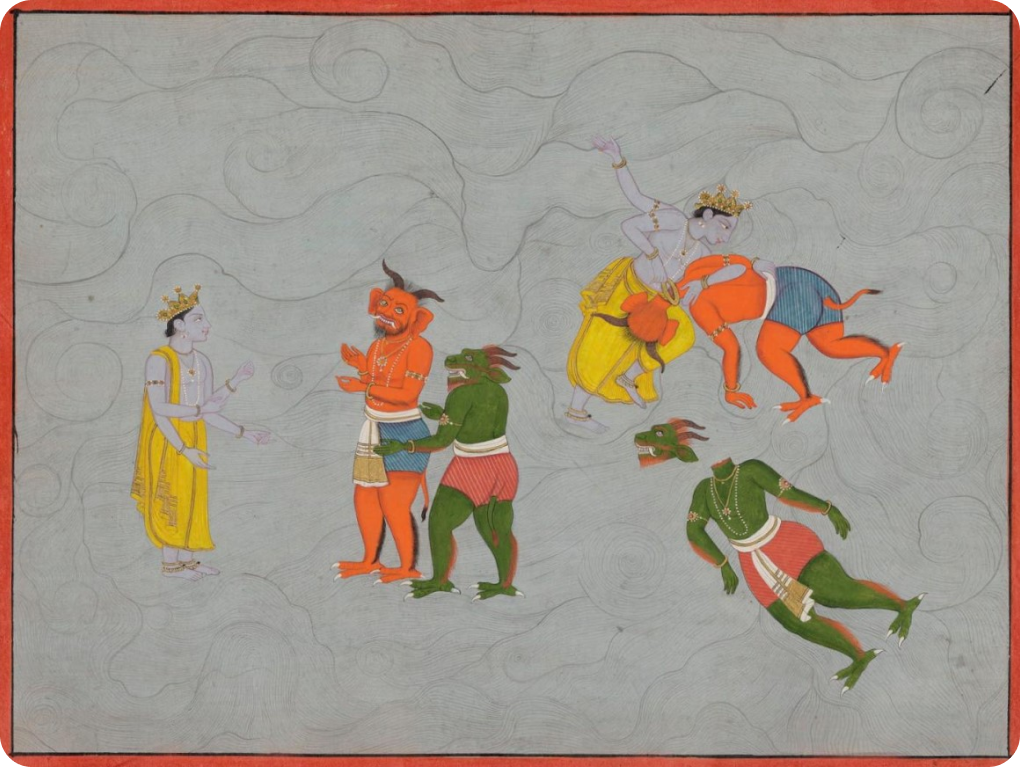also referred to as ‘Durga Saptashati’, ‘Chandi Path’, ‘Chandi’, ‘Devi Mahatmyam’

OṀ. Salutation to Caṇḍikā
1.1 OṀ aiṁ. Mārkaṇḍeya said:
1.2 Sāvarṇi, who is Sūrya’s son, is called the eighth manu. Listen while I relate the story of his birth
1.3 and of how, by Mahāmāyā’s authority, he—the illustrious son of the sun god—came to be the lord of an age.
1.4 Long ago in the age of the manu Svarociṣba, there arose from the line of Caitra a king named Suratha, who ruled over the whole earth.
1.5 He looked after his subjects justly, as if they were his own children. But there were princes at that time who attacked the native hill tribes and became his enemies.
1.6 Though mightily armed and resolved to fight against them, he suffered defeat in battle, despite his enemies’ inferior forces.
1.7 And so, with only his native province left to rule, he returned to his own city. There, powerful adversaries set upon him, the illustrious Suratha,
1.8 now bereft of strength. His ministers, mighty, corrupted, and disposed to evil, seized power and plundered the treasury, even there in his own city.
1.9 Thus robbed of his dominion, the king mounted his horse on the pretext of hunting and rode off alone into the dense forest.
1.10 He came upon the hermitage of Medhas, chief among the twice-born, and beheld a forest retreat, graced by the sage’s disciples. There he saw beasts once wild now peacefully abiding.
1.11 Welcomed by the sage, he remained at the hermitage for some time, wandering here and there about the enclosure
1.12 In that setting, self-centered concerns came to seize his mind, and he reflected: